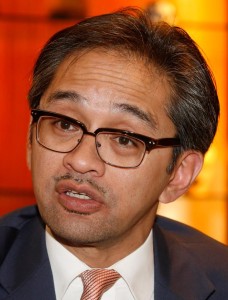Indonesian President Susilo Bambang Yudhoyono recalled his ambassador from Australia on Monday (November 18) and ordered a review of bilateral cooperation following reports that an Australian security agency attempted to listen to his cellphone in 2009.
Australian Broadcasting Corp. and The Guardian reported that they had documents from National Security Agency whistleblower Edward Snowden showing that the Australian agency also targeted the phones of Indonesian first lady Kristiani Herawati and another eight government ministers and officials.
The documents reportedly showed that the Australian Defence Signals Directorate, now the top-secret Australian Signals Directorate, attempted to listen to the president’s phone conversations on at least one occasion and tracked activity on the phone for 15 days in August 2009.
The diplomatic spat is the second in less than a month between Indonesia and Australia stemming from Snowden’s revelations linking Australia with US espionage.
It’s an early test for Australian Prime Minister Tony Abbott’s new government, which was elected in September and is anxious to cement ties with its populous near-neighbour before the uncertainty of Indonesian presidential elections next year.
Indonesian Foreign Minister Marty Natalegawa told reporters in Jakarta on Monday afternoon that Yudhoyono had “directly ordered” the ambassador, Nadjib Riphat Kesoema, to be recalled. Natalegawa said Indonesia “is very disturbed by this matter.”
“This is not a clever thing to do, it’s not a smart thing to do,” Natalegawa said of the reported spying. “It violates every single decent and legal instrument that I can think of.” He said the onus was now on Australia to explain what happened and to make a commitment that it would never happen again.
A document from Edward Snowden published last month by the German magazine Der Spiegel describes a signals intelligence program called ‘Stateroom’ in which US, British, Australian and Canadian embassies house surveillance equipment to collect electronic communications. Those countries, along with New Zealand, have an intelligence-sharing agreement known as ‘Five Eyes’.
The Australian Embassy in Jakarta was listed as one of the embassies involved in a report from Australia’s Fairfax media, along with Australian embassies in Bangkok, Hanoi, Beijing and Dili in East Timor; and High Commissions in Kuala Lumpur, Malaysia, and Port Moresby, Papua New Guinea.










